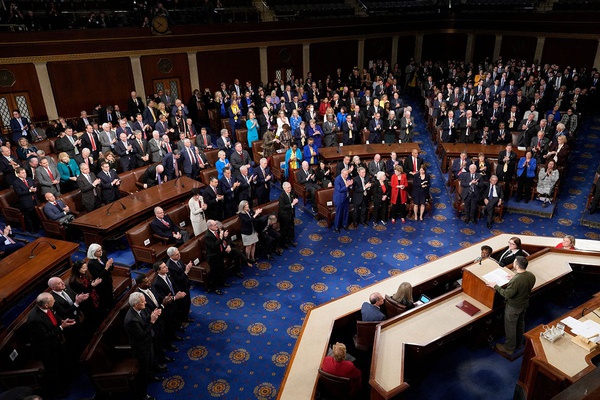October 29, 2024
The Global Engagement Center (GEC), a lesser-known State Department unit dedicated to combatting foreign disinformation, could soon disappear — not due to outside attacks, but from pressure within Congress. Originally created in 2016, the GEC has thwarted Russian and Chinese disinformation campaigns worldwide, scoring recent victories by exposing Kremlin-backed operations in Africa. Now, however, it’s facing potential closure, with its congressional mandate set to expire at year’s end.
The GEC’s Controversial Role in Fighting Disinformation
The GEC operates with a unique mandate: it targets and exposes state-sponsored disinformation that threatens U.S. interests abroad, often working closely with international allies. Led by veteran diplomat James Rubin, the GEC’s recent operations included countering Russia’s “African Initiative” — a campaign to spread anti-American disinformation targeting U.S.-funded health programs across the continent. By revealing this scheme early, the GEC helped prevent potentially devastating effects on public health in Africa.
This success, however, hasn’t shielded the center from harsh scrutiny by some Republican lawmakers, who argue that the GEC’s activities may overreach by influencing media narratives within the U.S. House Foreign Affairs Committee Chair Michael McCaul and others have voiced skepticism, pointing to past associations with entities like the Global Disinformation Index (GDI), which has rated some conservative outlets as high-risk for disinformation.
Senate Efforts to Save the GEC, But GOP Resistance Remains Strong
Senators Chris Murphy (D-Conn.) and John Cornyn (R-Texas) are fighting to preserve the GEC by attaching an amendment to this year’s must-pass National Defense Authorization Act, aiming to extend the center’s mandate to 2031. The amendment includes provisions to tighten financial oversight and prohibit support for U.S. political activities. Murphy insists that shutting down the GEC would leave the U.S. vulnerable to foreign influence at a critical time, emphasizing, “It would unnecessarily undermine U.S. national security if we eliminated this tool.”
Murphy’s and Cornyn’s amendment has gained the support of key Senate committees, but House Republicans remain wary. McCaul recently reiterated the need for “complete transparency, not obfuscations and ideologically biased grant-making” from the GEC. The controversy over the GDI — now defunded by the GEC — remains a focal point for critics concerned about alleged bias.
State Department Scrambles as Shutdown Looms
Rubin has spent countless hours on Capitol Hill defending the GEC, and the center has held more than 100 meetings with Congress this year alone to address lawmakers’ concerns. Despite his reassurances, the GEC’s future hangs in the balance, and the State Department has started preparing contingency plans should the GEC lose its mandate. Acting Undersecretary Lee Satterfield reportedly held a town hall with staff to outline possible options, including reassigning employees to other State Department divisions.
Even if the GEC shutters, the State Department has assured that countering disinformation remains a core mission, but many officials see this as a step backward in a rapidly growing global threat landscape. According to one State Department official, losing the GEC would “wipe out years of investment in specialized expertise.”
Global Allies Rally for the GEC Amid Rising Threats
International partners, including officials from countries grappling with Russian and Chinese influence, have praised the GEC’s work. A Western diplomat noted that the GEC’s recent findings on Kremlin-linked media in Europe have been “extremely useful” for shaping their own counter-disinformation strategies. In regions like Mali and Niger, disinformation campaigns have escalated into security crises, with recent political upheavals fueled by anti-Western narratives. “We’re seeing how these campaigns drive instability,” said a European official. “The GEC has been essential in our counter-efforts.”
Shuttering the GEC would leave the U.S. with fewer tools to counter global disinformation, at a time when adversarial campaigns have only intensified. Rubin remarked, “We’re just starting to get our footing, honestly. And I know that Secretary Blinken regards this as a mission-critical entity.”
The GEC’s fate now lies in Congress’ hands, but if the center closes, the U.S. may find itself scrambling to counter foreign influence in an increasingly complex information battlefield.
Source: Politico. For full details, read the original article here












